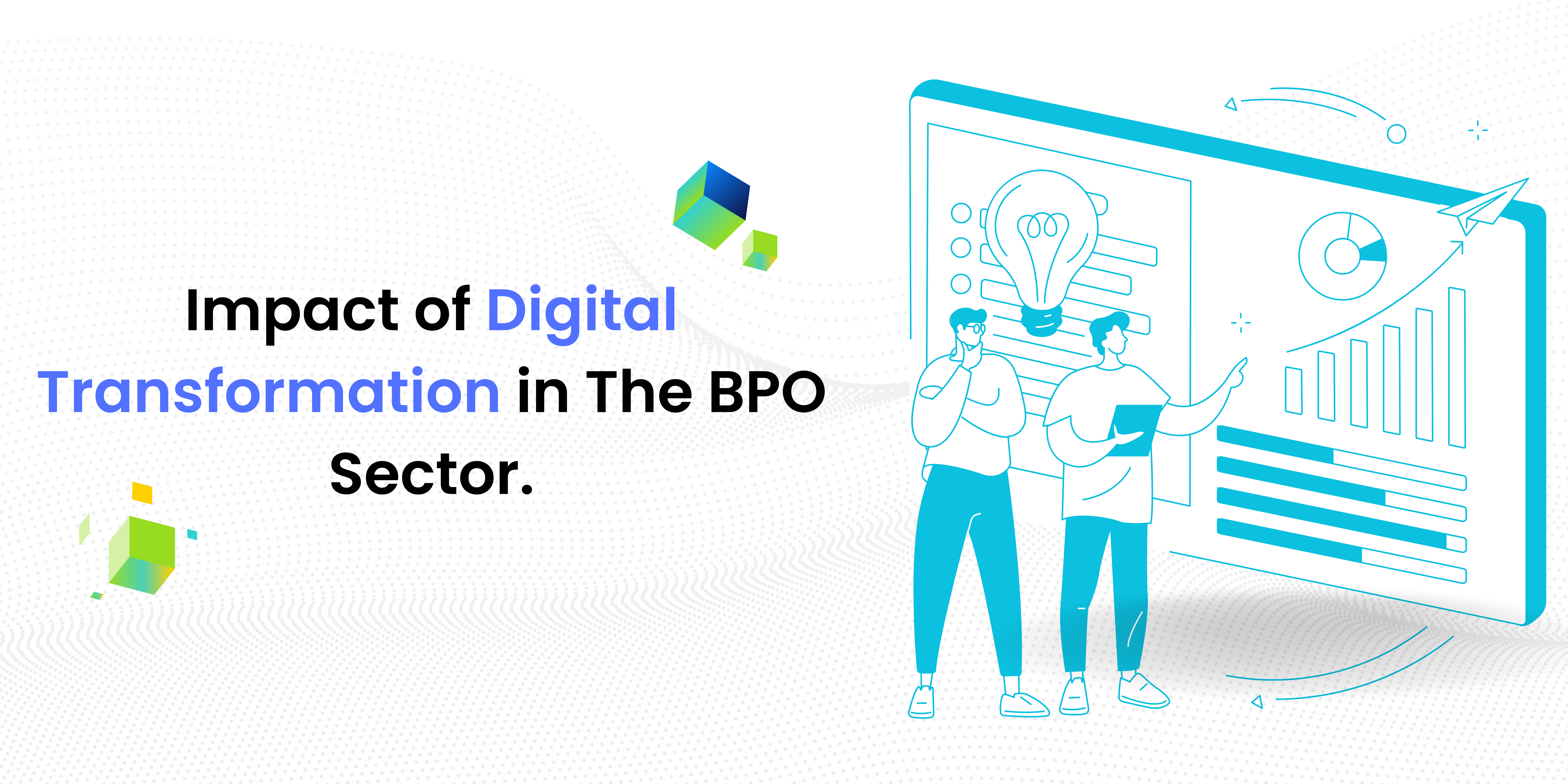
Digital transformation has been a buzzword in the business world for quite some time now. It refers to the integration of digital technology into all areas of a business, resulting in fundamental changes to how businesses operate and deliver value to customers. The BPO (Business Process Outsourcing) sector is no exception to this trend. In this blog, we will explore the impact of digital transformation on the BPO sector.
Understanding Business Process Outsourcing (BPO)
Firstly, let’s understand what the BPO sector is. BPO refers to the outsourcing of specific business functions to a third-party service provider. These functions can range from customer service and technical support to accounting and human resources. The BPO sector has been around for decades and has been a significant contributor to the global economy. However, with the advent of digital transformation, the BPO sector has undergone significant changes.
One of the most significant impacts of digital transformation on the BPO sector is the automation of processes. Automation refers to the use of technology to perform tasks that were previously done manually. In the BPO sector, automation has led to the development of Robotic Process Automation (RPA) tools that can perform repetitive tasks such as data entry, invoice processing, and report generation. This has resulted in increased efficiency and accuracy, as well as cost savings for BPO companies.
Another impact of digital transformation on the BPO sector is the rise of cloud computing. Cloud computing refers to the delivery of computing services over the internet. In the BPO sector, cloud computing has enabled companies to store and access data from anywhere in the world, making it easier to collaborate with clients and employees across different locations. Cloud computing has also made it easier for BPO companies to scale their operations up or down depending on demand.
The Impact of AI & ML
The use of artificial intelligence (AI) and machine learning (ML) is another impact of digital transformation on the BPO sector. AI and ML refer to the ability of machines to learn and improve from experience without being explicitly programmed. In the BPO sector, AI and ML are being used to improve customer service by providing personalized responses to customer queries and automating customer interactions. This has resulted in improved customer satisfaction and reduced costs for BPO companies.
Digital transformation has also led to the development of new business models in the BPO sector. One such model is the outcome-based pricing model, where BPO companies are paid based on the outcomes they deliver rather than the number of hours worked. This has resulted in increased accountability and transparency for BPO companies, as well as improved value for clients.
Challenges with Digital Transformation in the BPO
However, digital transformation has also brought about some challenges for the BPO sector. One of the biggest challenges is the need for upskilling and reskilling of employees. With the automation of processes, many traditional BPO jobs are becoming redundant, and employees need to be trained in new skills such as data analytics and AI. This requires significant investment in training and development, which can be a challenge for BPO companies.
Another challenge is the need for cybersecurity. With the rise of cloud computing and the use of AI and ML, BPO companies are handling sensitive data that needs to be protected from cyber threats. This requires significant investment in cybersecurity measures such as firewalls, encryption, and intrusion detection systems.
Final Thoughts
In conclusion, digital transformation has had a significant impact on the BPO sector. It has led to increased efficiency, accuracy, and cost savings through the automation of processes. It has also enabled BPO companies to collaborate with clients and employees across different locations through cloud computing.
Additionally, the use of AI and ML has improved customer service and led to the development of new business models such as outcome-based pricing. However, digital transformation has also brought about some challenges such as the need for upskilling and reskilling of employees and the need for cybersecurity measures. Overall, the BPO sector needs to embrace digital transformation to stay competitive in today’s business world.